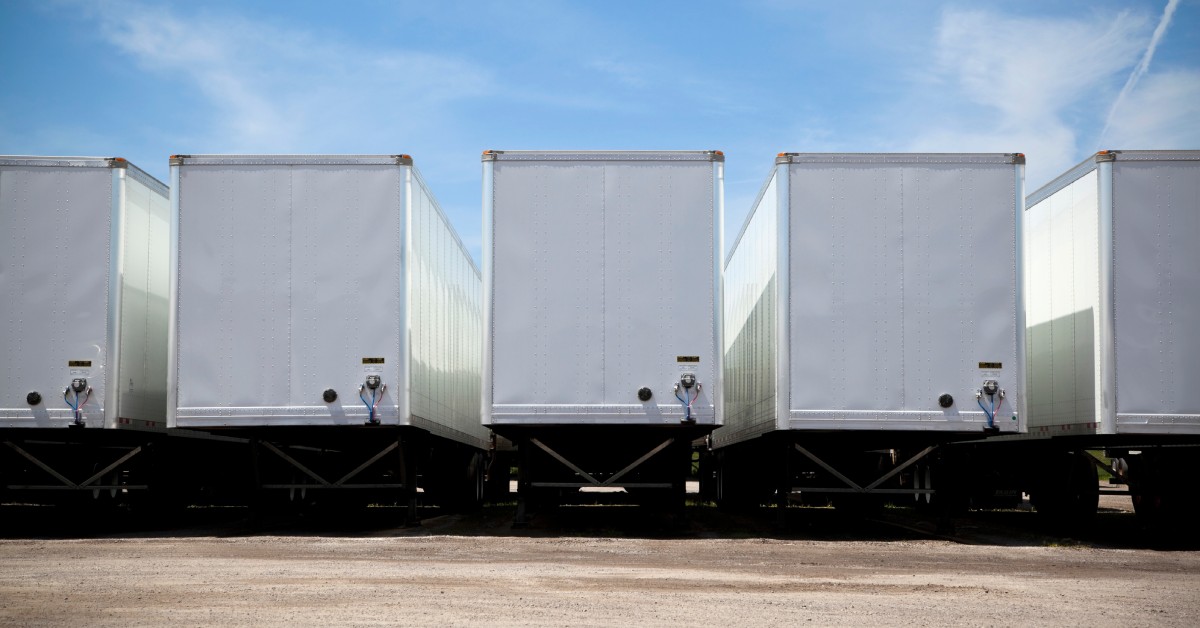Benefits of Using Long-Term Storage for Seasonal Equipment
—
August 19th, 2025

For many commercial businesses, their equipment goes far beyond a few tools or small machines. It includes large-scale assets like semi-trucks, trailers, boats, RVs, and other specialty vehicles that keep operations moving. These assets often see seasonal or fluctuating use.
For example, a transport company may park extra trailers during the off-season, and a marina may store vessels during the winter months. Businesses must secure spacious and cost-effective parking for these valuable assets.
The benefits of using long-term storage for seasonal equipment go far beyond finding a place to park. With the right storage solution, your company can protect high-value assets, free up valuable operational space, and better manage seasonal demands, all while keeping your fleet ready for the next job. We’ll break down five key reasons commercial businesses should consider long-term storage for large seasonal assets.
1. Protects Large Assets From Environmental Wear
Commercial vehicles and vessels cost a great deal to purchase, so businesses must care for them properly to maintain their value. When semi-trucks, trailers, boats, or RVs sit outside for extended periods, they face constant exposure to harsh elements. Sun damage can fade paint and crack seals, while rain, snow, and ice can corrode metal and compromise mechanical systems.
By placing these assets in a dedicated long-term storage facility, you shield them from the most damaging environmental factors. Even uncovered storage within a secure lot still protects assets when you pair them with quality covers, protective coatings, and proper preparation before long-term parking.
Consider a commercial RV rental company with a fleet of motorhomes used heavily in summer. During the offseason, the company stores these RVs in a secure facility that offers more protection than traditional storage methods.
This approach preserves the condition of each vehicle and helps avoid costly off-season repairs. When looking for RV storage in OKC, find a place that has the perfect combination of security, accessibility, and protection from unpredictable weather.
2. Frees Up Operational Space at Your Primary Location
Maximizing space drives profitability for many commercial enterprises. Every square foot at your operational hub should contribute to productivity. Parking unused or seasonal vehicles on-site blocks loading zones, crowds employee parking, and limits space for active equipment.
Long-term storage offers an easy way to move inactive vehicles and large gear off-site, freeing up your property for day-to-day operations. For example, a trucking company can store extra trailers during slower shipping months, leaving more maneuvering space for active rigs. Similarly, a construction company might park unused heavy equipment or specialized trailers off-site until the next project starts.
For businesses that serve customers on-site, this extra storage also improves appearance and safety. No one wants to walk past rows of unused equipment when visiting your facility. By relocating them to a secure storage lot, you create a cleaner, more professional impression while keeping your operational yard clear.
3. Enhances Security for High-Value Fleet and Equipment
Thieves and vandals often target semi-trucks, trailers, commercial boats, and RVs because of their high value. Parking them in unmonitored lots or on unsecured property exposes them to unnecessary risks.
A dedicated long-term storage facility provides added protection with gated access, 24/7 video surveillance, and on-site personnel. Some facilities use advanced entry systems with individualized access codes to track movement in and out of the property. Others may offer lighting systems that deter unauthorized activity and make it easier for drivers to navigate the lot at night.
Consider a commercial fishing company storing its fleet during the off-season. Without proper security, thieves could steal valuable onboard equipment. A secure storage facility locks everything behind gates and monitors it with cameras that deter thieves and provide proof in case of an incident.
Storing your seasonal equipment at a professional facility reduces theft risk and gives you peace of mind knowing your fleet stays monitored during downtime. This level of security allows you to focus on running your business instead of worrying about asset protection.
4. Streamlines Seasonal and Project-Based Transitions
Many industries experience strong seasonal cycles or work on project-based timelines. Retail distribution companies may run more trucks during the holidays and fewer in January.
Event companies might store trailers of staging equipment between large contracts. Without a system, switching between busy and slow periods can create logistical headaches.
Long-term storage simplifies these transitions. By grouping seasonal or project-specific vehicles and equipment in one dedicated location, you can bring them into rotation as needed without overcrowding your main facility. This improved space allocation means your team spends less time moving inactive units around to access active ones.
For example, a marine tourism company can store its larger vessels during the winter, keeping them in an organized lot where staff service, inspect, and prep them for the summer rush. When the season starts, the company retrieves each vessel in order, ensuring a smooth launch without delays.
5. Delivers Cost-Effective Solutions for Storage Needs
Commercial property costs a premium, and expanding your facility just to park unused trucks or trailers year-round rarely makes financial sense. Long-term storage facilities offer a cost-effective alternative, paying only for the space you need, when you need it.
This flexibility proves especially valuable for businesses with fluctuating fleet sizes. If you add vehicles during peak months but scale back later, you can adjust your storage needs accordingly. For example, a freight company might lease additional trailers for a high-demand season and then store them off-site until it needs them again, avoiding the cost of keeping them on a crowded lot.
The savings can go beyond rent. Reducing on-site congestion lowers insurance risks, minimizes accidental damage from tight parking, and improves employee productivity. Over time, long-term storage costs far less than the combined expenses of property expansion, asset damage, and operational inefficiencies.
Long-Term Storage: The Smart Move for Seasonal Assets
For commercial enterprises, large-scale seasonal assets like semi-trucks, trailers, boats, and RVs represent a significant investment and a logistical challenge. The benefits of using long-term storage for seasonal equipment include protection from environmental wear, freeing up operational space, improved security, easier seasonal transitions, and cost savings.
When you choose a secure, well-managed facility, you gain a reliable partner that protects your business’s most valuable assets. Whether your busy season comes in the summer, winter, or ties to specific projects, long-term storage facilities give you the flexibility, security, and peace of mind you need to keep your operations running smoothly all year.
Partner with Big Parking Spot today to safeguard your fleet and free up valuable space. Our secure, convenient, and spacious facilities keep your trucks, trailers, RVs, and boats protected year-round. Contact us now to reserve your spot and experience stress-free storage built for the needs of your business.
Categories
